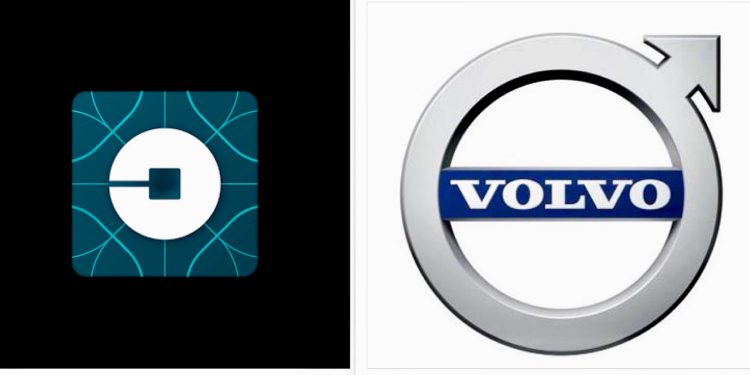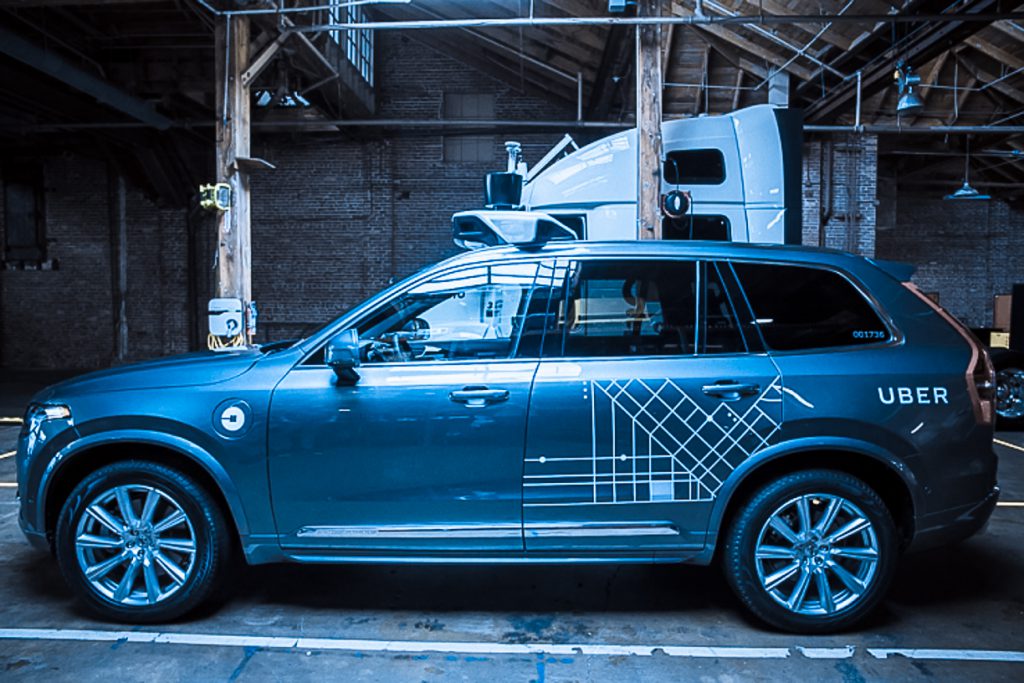Uber to Buy 24,000 Volvo Cars

I guess the party is not stopping anytime soon for Uber.
In the middle of the biggest corporate crisis in continental USA, where a CEO had to resign and an organization-wide reshuffle is still ongoing amid accusations of sexual harassment and tax anomalies, ride-sharing app Uber has announced a landmark deal with Volvo to acquire 24,000 units of the Swedish brand for its autonomous car project says a report from Reuters.

The Volvo XC90 is targetted as Uber’s first fleet of driver-less cars. (photo Uber)
Although non-binding just yet, this move, announced Monday November 20 2017, marks the transition of Uber from a mere application used to summon a taxi or private Uber car to an actual automobile fleet owner and operator, whether taxi or unmarked cars. This seems to be the solution of Uber to the setbacks it has been experiencing at their autonomous driving division in San Francisco.
Uber’s autonomous unit has been hit by lawsuits over trade secrets and departure of top talents but has been in talks with Volvo for three years now to acquire self driving cars from the Swede car company, most probably the XC90.
Car companies have been in a race to develop self-driving cars together with alternative fuels to be the first to capture an already high demand market. Ride hailing firms, like Uber and Lyft and Grab in the Philippines, are also keen to acquire the technology to further boost their operation in what is essentially predicted to be a billion dollar business.
Geely-owned Volvo said in a statement on Monday it would provide Uber with its flagship XC90 SUVs equipped with autonomous technology as part of a non-exclusive deal from 2019 to 2021. A Volvo spokesman said it covered up to 24,000 cars.
The self-driving system that would be used in the Volvo cars — which have yet to be built — is under development by Uber’s Advanced Technologies Group.
Should Uber buy all 24,000 cars, it would be Volvo’s largest order by far and the biggest sale in the autonomous vehicle industry, giving Uber, which is losing more than $600 million a quarter, its first commercial fleet of cars.
“We get support developing this car,” Volvo Cars CEO Hakan Samuelsson said in an interview. “It’s also a big commercial deal.”

Already equipped with sensors and radars, this XC90 will be the best foray into car fleets and autonomous driving by both Uber and Volvo. (photo Uber)
A new Volvo XC90 typically retails from a starting price of around $50,000.
Uber has been testing prototype Volvo cars for more than a year, with safety drivers in the front seat to intervene if the self-driving system fails, in Tempe, Arizona and Pittsburgh.
“Our goal was from day one to make investments into a vehicle that could be manufactured at scale,” Jeff Miller, Uber’s head of automotive alliances, said.
The cars, in theory, would be available through the Uber app to pick up passengers without a driver. “It only becomes a commercial business when you can remove that vehicle operator from the equation,” Miller said.
No financial details were disclosed for the purchase, which would be a massive new investment for Uber and mark a change from Uber’s long-standing business model where contractor drivers buy or lease and maintain their own cars.
Miller said a small number of cars would be purchased using equity and others would be bought using debt financing. The deal builds on a $300 million alliance Volvo announced with Uber last year focussed on collaborating on the design and financing of cars with self-driving systems, which require different steering and braking features and sensors.
Volvo, which has been under Chinese ownership since it was bought by Zhejiang Geely Holding Group from Ford in 2010, plans to make the SUVs at its Torslanda plant in western Sweden, and Samuelsson said they would be sold at roughly the same profit margin as Volvo sells through dealers.
Uber’s rival Lyft has this year struck a research partnership with Alphabet Inc’s unit Waymo and secured deals with Ford Motor Co. and startups Nutonomy and Drive.ai to incorporate self-driving cars into its fleet.
Volvo’s agreement with Uber and Ford’s with Lyft show the pressure on automakers to avoid becoming obsolete in a world of increased automation, and on ride-services companies to start automating to cut driver costs and turn profits.
Volvo is one of Sweden’s biggest manufacturers by revenue, and has forecast a fourth straight year of record sales in 2017.
(report from Reuters)






